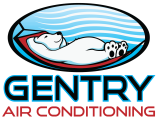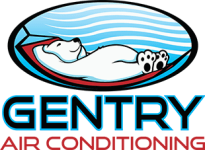When it gets hot outside, you want it to be nice and cool inside your home. Use this handy checklist to assess your HVAC system and then schedule an appointment for any needed AC maintenance or repairs before summer heats up.
Check filters and replace if needed. Air filters should be replaced every 1-3 months, depending on the level of dust and debris in your home. A dirty filter can restrict airflow and make your AC work harder, which can lead to decreased efficiency and higher energy bills.
Clear leaves and debris from around the outdoor unit. Leaves, dirt, and other debris can block the airflow around your outdoor unit, which can also make it work harder and less efficiently. Use a garden hose or leaf blower to clear away any debris that has accumulated around the unit.
Turn it on! Make sure your AC runs and meets your desired temperature before you need it. This will help you catch any problems early on. If the unit doesn’t turn on, or if it doesn’t cool your home to the desired temperature, call a qualified HVAC technician.
Use your senses:
- Listen for unusual sounds. A rattling noise could be a sign of a problem with the fan or compressor.
- Make note of smells that don’t seem right. A musty or moldy smell could indicate a problem with the evaporator coil.
- Feel the air to make sure it is cold. If the air is not cold, or if it is blowing warm air, there could be a problem with the refrigerant levels.
- Visually inspect the indoor and outdoor units for damage or issues. Look for loose or damaged components, or for signs of rust or corrosion.
- Check your thermostat schedule for proper temps and times. We recommend 72°F while you are home and 76°F while you are away.
By following these simple steps, you can help ensure that your AC unit is running properly and efficiently all summer long.
Here are some additional tips for maintaining your AC unit:
- Have your AC unit professionally serviced at least once a year. This will help to catch any potential problems early on and prevent more serious repairs down the road.
- Seal any air leaks in your home. Air leaks can cause your AC unit to work harder and less efficiently.
- Keep your home well-insulated. Proper insulation can help to keep your home cooler in the summer and warmer in the winter, which can help to reduce your energy bills.
By following these tips, you can help keep your AC unit running smoothly and efficiently for many years to come.












